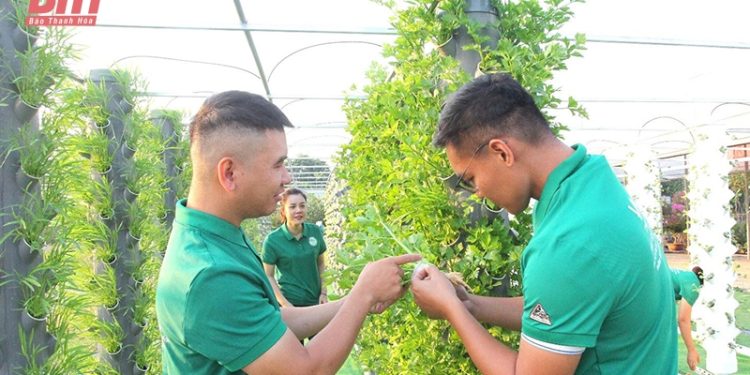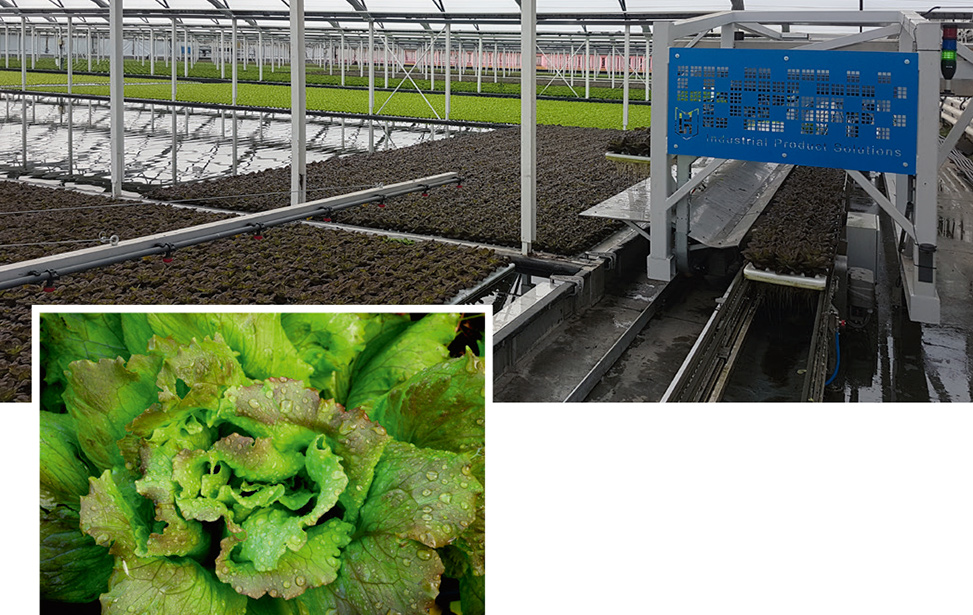#AeroponicFarming #ModernAgriculture #SustainableFarming #EconomicProspects #InnovationInAgriculture #VietnameseFarmers #AgriculturalTechnology #CleanProduce #FarmToTable #AgribusinessTrends
In the bustling city of Thanh Hoa, Vietnam, Mr. Huynh Duc Hieu has embarked on a journey to revolutionize agriculture through the adoption of aeroponic vegetable farming. Recognizing the superiority and efficiency of this method, he invested time and resources to learn and implement it. After nearly six months in operation, the aeroponic farming model has yielded its first harvest, showcasing the potential economic benefits.
Aeroponic farming, a modern agricultural approach that eliminates the use of soil and water, relies on nutrient-rich mist to nourish plants. Widely implemented across various provinces and cities in Vietnam, this method has gained popularity for its efficiency and sustainability. Mr. Hieu’s dedication led him to the city of Da Lat, where he learned and embraced the techniques of modern agriculture.
Having invested over two months in intensive learning, Mr. Hieu returned to Thanh Hoa, determined to implement the aeroponic farming model. In August 2023, he leased land and received technology transfer from VA Farm, a leading company in clean aeroponic vegetable production. With an initial experimental area of over 300m2, cultivating crops like kale, lettuce, celery, and sweet potatoes, the model aims to produce premium vegetables with high nutritional content.
The aeroponic system, comprising 60 vertical towers with 48 planting slots each, operates in a cyclical manner. Water stored in tanks is pumped through a misting system on the towers, providing nutrients to the plants. This process ensures that the crops receive adequate food, water, and air for respiration. With a survival rate exceeding 95%, the crops demonstrate robust growth, and the absence of pesticides guarantees food safety.
Aeroponic farming proves to be a water and nutrient-efficient alternative compared to traditional cultivation methods. Each crop cycle lasts from 25 to 30 days, with each tower yielding 7-10 kg of produce. Scaling up, a 300m2 garden can produce 4.2 to 6 tons of vegetables per month. With intercropping short and long-term vegetables, the annual production can reach 10-12 cycles.
Initially met with skepticism and confusion, people have come to appreciate the distinctive quality of aeroponically grown vegetables. The produce is described as sweet, crisp, aromatic, and delicious. Mr. Hieu emphasizes that the aeroponic model, while a newcomer, holds great promise for the future. As consumer preferences shift towards delicious and clean produce, aeroponic farming aligns with the growing focus on health and well-being.
A cost-effective installation (ranging from 1.5 – 1.8 million VND/tower) makes aeroponic farming suitable for small spaces, fostering its application in households, offices, schools, hospitals, and more. Many families, recognizing its advantages, have embraced the model, installing small-scale aeroponic systems for home production.
The success of Mr. Huynh Duc Hieu’s venture into aeroponic vegetable farming highlights the economic potential and sustainability of this innovative agricultural method. As consumer preferences evolve towards healthier and tastier produce, aeroponic farming emerges as a promising solution, offering not just economic benefits but also addressing environmental concerns. The future of agriculture seems to be airborne, as aeroponics takes root in various sectors, promising a greener and more prosperous future.











